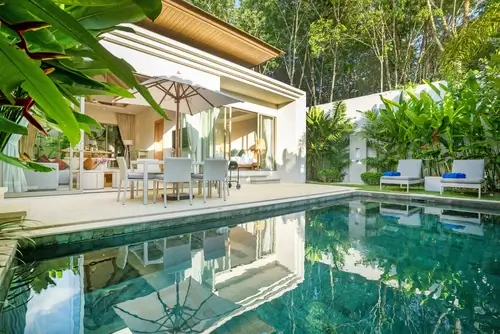

Determining the amount of money required to purchase your first house is usually straightforward. But when it's time to buy a second or vacation property, things can get a bit more complicated. How much can you spend on a vacation home without jeopardizing your financial stability? Let's explore the steps to make a smart and informed decision.
- Seek Professional Advice: Consult with mortgage and financial advisors. We can help navigate the complexities of buying a vacation home and avoid potential pitfalls, ensuring a smooth purchasing process.
- Assess Your Financial Situation: Before you start searching for a vacation home, take a realistic look at your financial status. Evaluate your income, expenses, and any outstanding debts. Owning a beachfront property may be tempting, but your financial health is the priority.
- Calculate Your Debt-to-Income Ratio: Lenders use this ratio to determine the percentage of your monthly income that goes towards debt payments. If your debt is significantly impacting your income, you may need to reconsider the size or location of your vacation home.
- Plan Your Down Payment: The size of your down payment can significantly affect your monthly mortgage payments. A larger down payment can reduce your monthly financial burden, contributing to long-term financial stability.
- Consider Ongoing Monthly Costs: In addition to the mortgage, account for other monthly expenses such as property taxes, insurance, and utilities. These costs are crucial to understanding the full financial impact of owning a vacation home.
- Test Your Budget: Before committing, simulate living your vacation-home lifestyle. Deduct potential expenses from your monthly budget to see if you can comfortably afford it. This step helps ensure your financial plan is realistic.
- Align with Your Lifestyle: Choose a vacation home that matches your vacation style. If you prefer short weekend getaways, a condo might be more budget-friendly than a large property intended for extended stays.
- Plan for Unexpected Expenses: Prepare for unexpected maintenance and repair costs. Having a financial cushion for these unforeseen expenses can prevent financial strain.
Ultimately, buying a vacation home is about balancing your financial feasibility with your dream of having a perfect getaway. By assessing your finances, planning carefully, and seeking expert advice, you can make a smart investment that enhances your lifestyle without causing financial stress. Here's to making your vacation home dreams a reality!
Ready to make your dream vacation home a reality?
Contact us today to get Pre-Approved for a mortgage to buy your vacation home!





